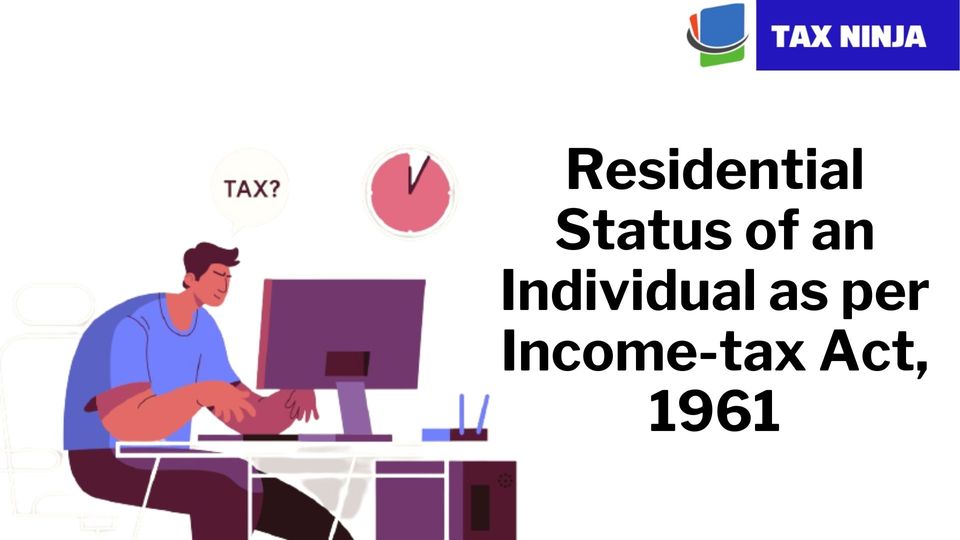

Section 6 of Income-tax Act, 1961 exhibits the criteria to assess the residential status of a person.
In India, Income Tax is levied on the basis of stay of person and not on the basis of citizenship of individual or incorporation (in case of other than individual). So in order to determine whether indian income tax is applicable on total income earned, it becomes crucial to determine the residential status and evaluate if income is taxable in India.
If you are here to know your residential status then you can straight away jump to the end of this blog and try Tax Ninja's Residential Status Calculator, our exclusive simplified questionnaire based calculator that will help you determine your residential status in few clicks.
If you are here to understand fundamentals of the residential status of individual, make sure to read this blog to the end. Just a word of caution that this blog is merely for educational purpose and will not be containing the bare text reference in any way. I will try to decode the confusing parts of the bare act and shed light over the important provisions.
Broadly, residential status can be classified under three categories:
1) Resident - Resident and Ordinarily Resident (ROR)
2) Resident - Resident but Not Ordinarily Resident (RNOR)
3) Non-Resident (NR)
Now, let us first start with the term resident. So, who are called the resident?
Any person staying for
shall be deemed to be resident for the purpose of Income-tax Act, 1961.
Note: The condition of 60 days above is not applicable (i.e. the person will be deemed to be resident only if stay is above 182 days) for the person fulfilling any of the below listed criterias:
- Indian citizen leaving India for the purpose of employment outside India,
- Indian citizen being a crew member of Indian Ship leaving India
- Indian citizen or person of Indian origin (if either his parents or grandparents were born in undivided India) who visits India having total income, other than the income from foreign sources less than Rs. 15 lakhs.
Special Note: In case total income, other than the income from foreign sources is in excess of Rs. 15 lakhs 120 days shall be taken to evaluate residential status instead of 60 days.
Now, we need to determine if an individual is ROR or RNOR :
1. Resident and Ordinarily Resident (ROR) : You will be classified as Resident and Ordinarily Resident if
2. Resident but Not Ordinarily Resident (RNOR) : You will be classified as Resident but not Ordinarily Resident if
Lastly, Non-Resident(NR): Any person who either stays for less than 60 days or is not covered by any of the cases discussed above shall be deemed to be non-resident for the purpose of Income-tax Act, 1961.
A new section has also been introduced that classifies individuals as Deemed Resident. Now, a deemed resident is an Indian citizen who shall be grouped as Resident but Not Ordinarily Resident (RNOR) if :
| Scope of Total Income | ROR | RNOR | Non-Resident |
| Income which is received or is deemed to be received in India (earned anywhere) | Taxable | Taxable | Taxable |
| Income which accrues or arises or is deemed to accrue or arise in India (recieved anywhere) | Taxable | Taxable | Taxable |
| Income which accrues outside India from a business controlled in or a profession set up in India | Taxable | Taxable | Non taxable |
| Residual Income (Earned, received and control outside India) | Taxable | Non taxable | Non taxable |